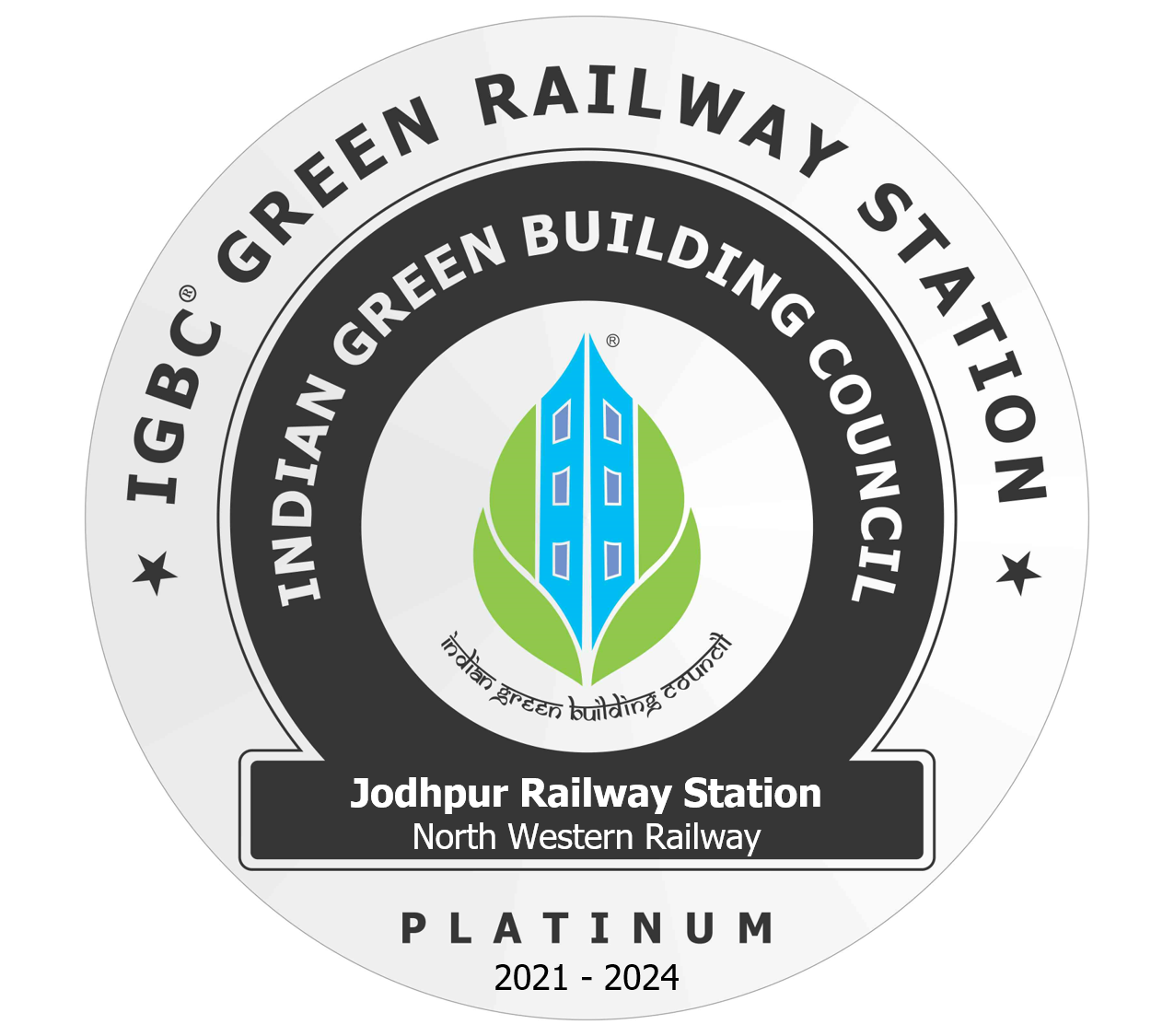Lorem Ipsum is simply dummy text simply simply
Sep 21,2018 - Train

Jodhpur Railway station has been awarded as India’s first railway station to become Platinum Rated Green Railway Station with Highest Points. Under the guidance of DRM Smt. Gitika Pandey and with the efforts of Jodhpur Railway Station Director Mr. Narayan Lal, AENHm Mr. Anil with railway team and green building consultant “De Calorie Energy Consultant” Managing Director Mr. Varun Gaur and his team, Jodhpur railway station got maximum points to achieve Platinum Rating till date not done by any other railway station. This is given by the Indian Green Building Council – Confederation of Industry (IGBC-CII). The IGBC-CII, with the support of Environment Directorate of the Indian Railways, has developed the Green Railway Stations Rating system to facilitate the transformation of existing railway stations into eco-friendly ones that offer an enhanced commuter experience. The rating system actually address national priorities like water conservation, handling of waste, energy efficiency, reduced use of fossil fuels, less dependency on usage of valuable materials and the health and well-being of occupants.
Jodhpur Railway station designed such a way with having more than 90% daylight is available at each office area, booking area by using passive design like Jali etc. Main platform has extra features architectural design where there is a buffer zone which is open area. This makes this station more ventilated and having ample daylight. Jodhpur Railway preserved all the trees at even platform areas and installed vertical gardens. Jodhpur railway station team is using 100% LED lighting’s , BEE star rated equipment, super efficient fans, renewable energy solar has been installed all over the roof and shed with total capacity of 870 kWP which is 43% of total load of railway station. Jodhpur station is saving total 45% of energy and water saving which cost around 20 lakhs per annum. Railway team installed Biogas generator where food and landscape waste converted to energy and using as a biogas in kitchen and lighting which is saving around 6.5 lakhs per annum.
Several Green initiatives are in practice at Jodhpur Railway Station like Sewage Treatment Plant with a capacity of 3 Lakh liters per day, availability of central waste collection for hazardous, wet and dry waste, certified green products used for cleanliness and maintenance, energy and water audits conducted once every three years, CO2 sensors provided at AC waiting halls and waiting rooms integrated with fresh air fans, using solar hot water at kitchen areas (1,400 liters per day), and sub-metering for energy and water usage.
Additionally, the railway station offers smart passenger services as 100 percent digital cashless payments, free high speed wifi facility for passengers, seating areas, mobile and laptop charging stations, kiosk, ATVM machines, CCTV surveillance, pre-paid auto/taxi stand, and May I help you desk. Jodhpur railway station team worked on the several innovations like ISO certifications, encouraging vocal for local and Rajasthani cultural products, automatic coach filling scads system which saves a lot of water, bottle crushing machine where they are reusing the flakes. Air conditioned rooms provided with Fresh air provision everywhere at station premises.
Concourse area has HVLS fans which provides thermal comfort for passengers as well as overall energy savings. Team installed low flow water fixtures, waterless urinals and dual flush system which confirms water efficiency of 20%. Automatic coach washing plant is saving up to 60% of water and team is reusing the water from ETP Plant. Railway station is well designed for differently abled and team has in-house fabrication team which design foldable ramp for easy access to trains by using scrap material. Jodhpur railway station is covers with solar panels on roof and used paved blocks to reduce heat island effect.
User Comments
Gautam P
Lorem Ipsum is simply dummy text of the printing and typesetting industry. Lorem Ipsum has been the industry's standard dummy text ever since the 1500s, when an unknown printer took a galley of type
Gautam P
Lorem Ipsum is simply dummy text of the printing and typesetting industry. Lorem Ipsum has been the industry's standard dummy text ever since the 1500s, when an unknown printer took a galley of type
Gautam P
Lorem Ipsum is simply dummy text of the printing and typesetting industry. Lorem Ipsum has been the industry's standard dummy text ever since the 1500s, when an unknown printer took a galley of type
Comment